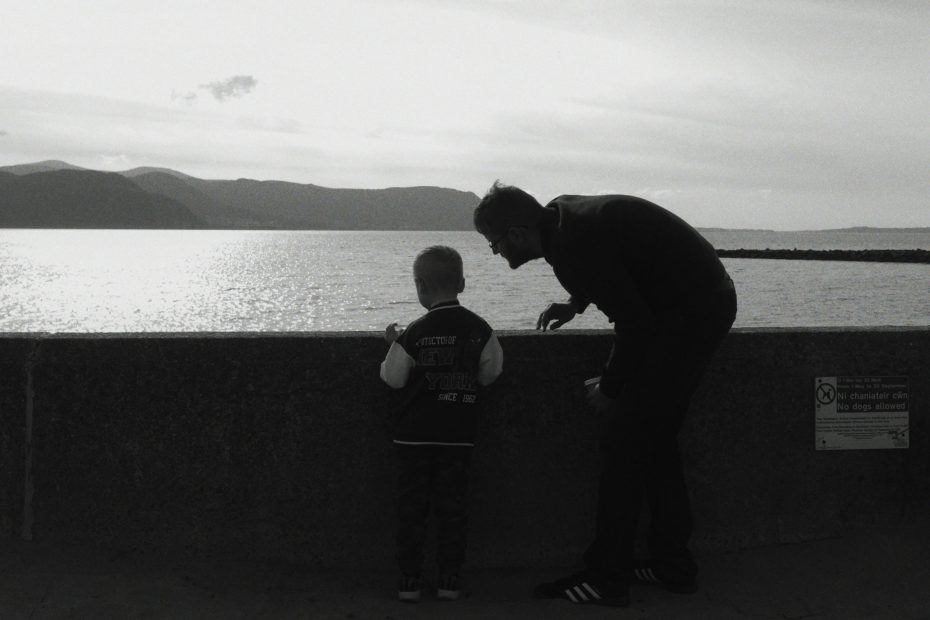Going through a custody battle is one of the toughest challenges a parent can face. Amidst legal proceedings, emotional turmoil, and logistical hurdles, it’s natural to fear that your bond with your child might be slipping away. But maintaining that connection isn’t just important—it’s necessary. Despite the challenges, there are practical steps you can take to ensure your child continues to feel loved, supported, and secure, even during the most trying times.
Stepping Into Your Child’s World
Now, imagine the world through your child’s eyes. Custody battles feel confusing, frightening, and deeply unsettling. While children might not fully grasp the complexities, they are often painfully aware of the tension between their parents. As a parent, your role is to help them feel stable and loved.
When discussing the situation, remember to communicate in a way that fits their age and understanding. Younger kids may only need reassurance that both parents love them, while older children might benefit from a little more detail—but always framed in a way that doesn’t overwhelm them.
Working Mom Blog | Outside the Box Mom
The Power of Staying Calm
It’s easy to lose your cool when tensions are high. Whether it’s during a courtroom session, a challenging conversation with your ex, or just the mounting stress of the custody process, maintaining a calm demeanor is key.

Courts often look favorably on parents who can stay composed, be cooperative, and put their children’s needs first.
Kids in the House
One way to keep calm is to visualize a protective barrier around you—a mental bubble that helps you stay grounded. Picture it as a soft, positive shield that keeps negativity out and allows you to focus on what truly matters—your child. This simple visualization technique can help in moments when stress feels overwhelming.
Fostering a Positive Environment
A common pitfall during custody battles is badmouthing the other parent. You might feel justified in expressing anger or disappointment, but doing so in front of your child can have unintended negative effects. Courts can see this behavior as an attempt to alienate the other parent, and it can damage your child’s emotional well-being by creating confusion and unnecessary stress.

Instead, aim to support your child’s relationship with both parents. Creating a positive environment doesn’t mean pretending everything is perfect; it’s about giving your child permission to love both parents without feeling torn. When you need to vent, you can confide in a therapist, trusted friend, or support group, but it’s important to keep your child shielded from those emotions.
Working Mom Blog | Outside the Box Mom
Maintaining Routine and Quality Connection
When everything feels uncertain, stability becomes a lifeline for children. Maintaining consistent routines—like regular meal times, bedtime rituals, and weekend activities—helps create a sense of security. These predictable moments offer comfort and familiarity, reminding your child that some things remain steady, even amid all the changes.
Connecting with your child doesn’t need to be complicated or expensive. The key is to make your time together meaningful. Small actions, like playing their favorite game, helping them with homework, or simply listening to their day, are all opportunities to strengthen your bond.
Mastering Co-Parenting Communication

Even when it feels impossible, keeping the lines of communication open with your co-parent is crucial. Use a calm and factual tone, and keep discussions focused on your child’s needs rather than personal grievances. Not only does this benefit your child, but it also shows maturity and a child-centered approach to the courts.
If direct communication is challenging, consider using co-parenting apps that help manage schedules, document agreements, and reduce confrontational interactions. Flexibility is also essential—being willing to compromise on less crucial issues will show that you’re committed to co-parenting and putting your child first.
Being Prepared Legally
While your primary goal is to care for your child, being prepared legally is vital. Courts take multiple factors into account when deciding custody, such as the parent’s role in the child’s day-to-day life, their living situation, and their willingness to co-parent. A solid strategy involves documenting all interactions related to your child, from school involvement to healthcare appointments.
- Keep a Record of Daily Involvement: Write down everything from picking your child up from school to spending time together on weekends. These records not only demonstrate your active role in your child’s life but also serve as valuable evidence if needed.
- Save Communications with Your Co-Parent: Whether via email, text, or phone calls, document all conversations that pertain to your child’s well-being. Consistent and organized records can be an asset if legal challenges arise.
Taking Care of Yourself
Custody battles are emotionally draining, and it’s easy to put self-care on the back burner. However, looking after your own well-being is critical—not just for you but also for your child. Lean on a support system, whether it’s friends, family, or a mental health professional—to share your feelings and help you stay emotionally grounded.
Practice daily motivation and affirmations. Sticky notes on your bathroom mirror, positive mantras like “I am a strong parent” or “I can get through this,” and even visualizing your future relationship with your child can help you maintain a positive mindset and build resilience during tough times.
Showcasing Your Role as a Caregiver
In custody battles, there’s a thin line between just being ‘there’ and being actively involved in your child’s life. Courts evaluate your engagement in their activities, education, healthcare, and overall well-being. Make it a point to be present for both big milestones and everyday moments.
Attend parent-teacher meetings, support your child’s extracurricular interests, and ensure their emotional and healthcare needs are being met. Providing a stable and loving home environment also reinforces your role as a capable caregiver.
Preparing for Life Beyond the Battle
Once custody arrangements are finalized, a new chapter begins. It’s no longer about winning or losing, but about co-parenting effectively and creating a positive environment for your child. Stick to the agreed schedule, communicate respectfully with your co-parent, and make your child’s happiness and stability your top priority. This shift from “battle mode” to partnership helps you and your child transition into a healthier dynamic.
Final Thoughts: Keeping the Bigger Picture in Focus
Custody battles can shake up your life in ways you never imagined. But amidst the stress and legal complexities, one thing stays constant—your love for your child.

Focus on the connection you share, be present and consistent, and take care of yourself along the way. Regardless of the outcome, your unwavering dedication to being a loving and supportive parent is what will shape your child’s future and well-being. In the midst of the struggle, what matters most isn’t the verdict—it’s the unshakable bond you continue to nurture.
